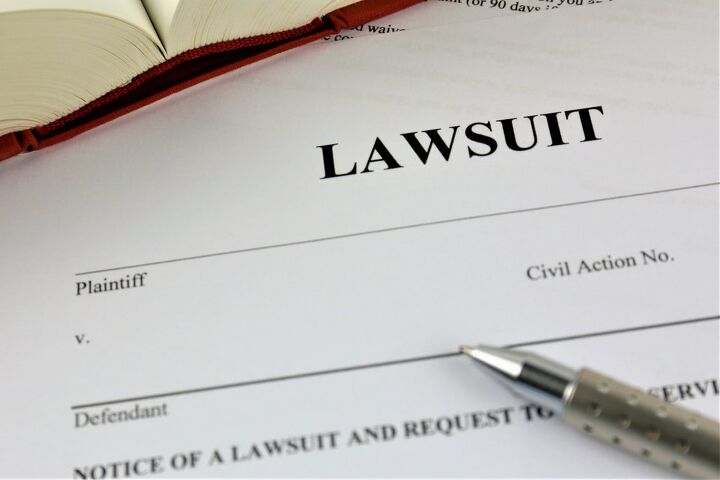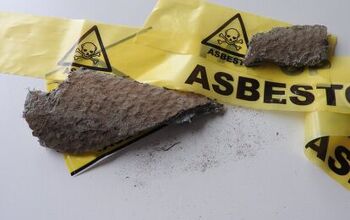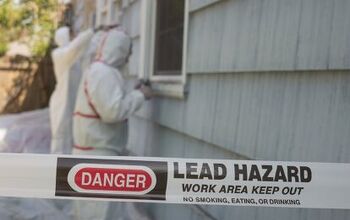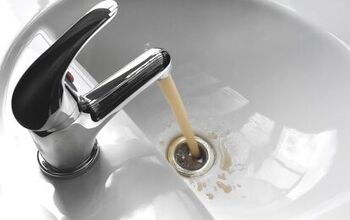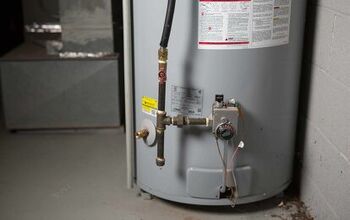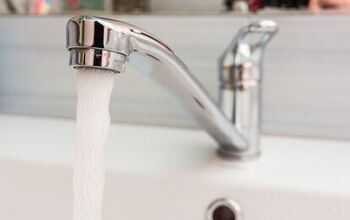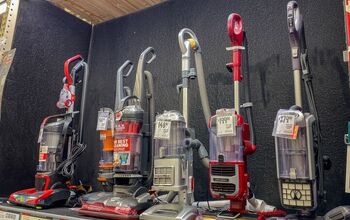Can I Sue My Landlord For Raw Sewage? (Find Out Now!)

The smell of raw sewage is nasty. Plus, the fumes can be toxic for you and your family to breathe. But who’s responsible for fixing it, and what happens if you ignore the problem? Here’s what you need to know.
Your landlord has to keep the property safe for tenants. So, they could get in trouble if they don’t fix your sewage problem fast enough. And according to some state laws, you can sue your landlord for raw sewage then recoup some of your deposit.
Is My Landlord Responsible for Sewage Odors?
Your landlord may or may not be responsible for the foul odors coming from your sewage line. It all depends on where the smell originates. For example, if the problem came from something you did, then you’re the one responsible for paying the damages.
On the other hand, your landlord may have to pay for repairs if they’ve directly or indirectly caused the problem. Plus, leaks that existed before you moved in aren’t yours to patch. And if the issue stems from a neighboring system, it’s the city’s job to pay for fixes.
How Do I Report Sewer Smell?
Reporting the smell of raw sewage is easy. Just follow these three simple steps:
- Locate the source of the smell. First, examine your interior and exterior lines for cracks and holes. You can tell whether your sewage pipes are leaking by doing a sewer smoke test.
- Tell your landlord about the odor right away. The longer you wait to stop the smell of sewage, the harder it will be to fix the problem. Plus, existing leaks could get worse with time.
- Keep records of your complaints. Write down when you speak to your landlord. And try to track dates because your landlord could get in trouble if they don’t repair the system fast enough.
Remember, it might not be your landlord’s job to fix the sewage lines. It could be the community’s duty. So, approach your landlord with respect and see what you can do to prevent this from happening again.
Who Cleans Up Raw Sewage at a Rental?
The person responsible for cleaning up raw sewage at a rental also depends on how the sewage problems started. If you are the culprit, you’ll have to pay. But if it’s your landlord’s responsibility, they have to foot the bill. And that includes paying for the sewer smoke test to find leaks.
Look at your lease to find out who’s responsible for repairs. Then, find out the housing laws in your state. That’s because states can give landlords different amounts of time to fix issues. Plus, some sewage problems could make your house legally uninhabitable.
NOTE: You or your landlord will have to call a licensed plumber in most cases. Meanwhile, professional plumbing services can cost between $150 and $300 per hour.
What Constitutes Unsafe Living Conditions?
Unsafe living conditions are conditions wherein the house causes a significant health concern. And a landlord can evict you for being messy if your messiness becomes a safety hazard. That means irresponsible behavior that causes a sewage problem might make your home uninhabitable.
Other unsafe living conditions can include the following:
- Poor structure construction
- Lacking maintenance
- Animal waste build-up
- Pest infestations
- Holes in the floors or walls
- Exposed wiring
- HVAC in disrepair (during extreme weather)
Is Raw Sewage Toxic?
Raw sewage is highly toxic. That’s because it contains scores of bacteria and potential contaminants that can compromise your health. So, you can sue your landlord if the water in your apartment isn’t clean. Unclean water puts your whole family in danger.
Once you inhale contaminated vapors from your sewer, the airborne toxins begin attacking your upper respiratory system. So, you or a loved one could develop flu-like symptoms, shortness of breath, or an asthma attack. That means contaminated water isn’t your only concern.
Moreover, you can become seriously ill from breathing in the fumes from raw sewage. Sewer vapors can cause gastroenteritis, which leads to many severe side effects. And people who develop gastroenteritis may experience high fevers, severe vomiting, painful cramps, or even death.
Can I Sue My Landlord for Raw Sewage?
Because breathing in raw sewage vapors is dangerous, you can usually sue your landlord for damages. That’s especially true if sewer leaks were their responsibility to fix. And if your landlord ignores your pleas for help, they may get in trouble at court.
Furthermore, document any instances where you or a loved one got sick because of the sewage. That proof can help secure your case in court. If you or someone you love gets sick due to their negligence, you’re entitled to reparations. And if you’ve already paid for sewer services, you could get reimbursed.
TIP: Try to keep detailed records with receipts to prove your case to the judge.
How Do I Get My Landlord in Trouble for Raw Sewage?
You can get your landlord in big trouble if they don’t fix problems that are theirs to fix. That’s because there are laws in place to protect both parties. And tenants aren’t expected to live in sub-par housing just to save their landlord money. After all, being a landlord isn’t cheap or easy.
If you have specific questions about who’s responsible for sewer repairs, talk to your landlord first. But if they ignore your cries for help or continually break promises, hire a lawyer. You have rights as a renter, and you might have to exercise them to live safely.
DID YOU KNOW: Your landlord might also have to pay court costs if the judge rules in your favor.
3 Steps to Win Your Case in Court as a Tenant
Your landlord might have more resources than you, but you still have rights under the law. So, here are three simple ways to make sure your rights get respected in court.
#1. Document Your Complaints As They Happen
It won’t look good in court if your landlord isn’t fixing things despite your requests. Now is your chance to prove to the judge who’s responsible and who’s negligent. Just make sure neither one of those is you.
#2. Keep Track of Your Landlord’s Behaviors
Regardless of the problem or how it started, there are certain things your landlord can and cannot do. So, make sure to track their decisions, behaviors, and comments. And if you can, gather witnesses to corroborate your story.
#3. Organize Receipts to Demonstrate Your Loss
Hold on to your repair receipts because you could get reimbursed by the courts. If your landlord is found responsible or negligent, they’ll have to pay you back for any money you’ve spent. But you can’t recoup repair costs if you can’t prove your expenses.
FACT: Increased utility bills are among the most common types of damage reimbursed by the court.
It’s usually not safe to stay in a home with backed-up sewage. That’s because sewer gas can make you sick. Airborne bacteria and viruses pose a serious threat to your health. And standing water can damage your home, which leans to mold and mildew. So, proceed with caution and contact your landlord right away.
Sewer gas exposure can be life-threatening. And even low levels of hydrogen sulfide can irritate your eyes, stomach, and respiratory system. Small children and older adults are at an incredibly high risk of developing complications due to inhalation.
Symptoms of sewage exposure include dizziness, nausea, lethargy, headaches, and nerve problems. So, see a doctor right away if you suspect a problem.

Tiffany Nichols specializes in aesthetics, design, marketing, and manufacturing. She's a copywriter and editor for several home renovation companies in the U.S. and works alongside some of the biggest names in the industry. Her hobbies include architecture, art, mental health, and fashion.
More by Tiffany Nichols



